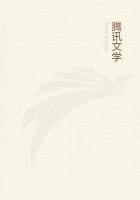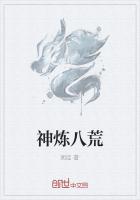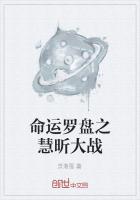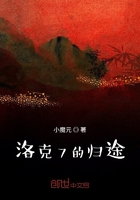After which, the review at Magdeburg; and home on the 24th, there to "be busy as a Turk or as a M. Jordan,"--according to what we read long since.
Chapter VII.
WITHDRAWS TO REINSBERG, HOPING A PEACEABLE WINTER.
By this Herstal token, which is now blazing abroad, now and for a month to come, it can be judged that the young King of Prussia intends to stand on his own footing, quite peremptorily if need be; and will by no means have himself led about in Imperial harness, as his late Father was. So that a dull Public (Herrenhausen very specially), and Gazetteer Owls of Minerva everywhere, may expect events. All the more indubitably, when that spade-work comes to light in the Wesel Country. It is privately certain (the Gazetteers not yet sure about it, till they see the actual spades going), this new King does fully intend to assert his rights on Berg-Julich; and will appear there with his iron ramrods, the instant old Kur-Pfalz shall decease, let France and the Kaiser say No to it or say Yes. There are, in fact, at a fit place, "Buderich in the neighborhood of Wesel," certain rampart-works, beginnings as of an Entrenched Camp, going on;--"for Review purposes merely," say the Gazetteers, IN ITALICS. Here, it privately is Friedrich's resolution, shall a Prussian Army, of the due strength (could be well-nigh 100,000 strong if needful), make its appearance, directly on old Kur-Pfalz's decease, if one live to see such event. [Stenzel, iv. 61.] France and the Kaiser will probably take good survey of that Buderich phenomenon before meddling.
To do his work like a King, and shun no peril and no toil in the course of what his work may be, is Friedrich's rule and intention.
Nevertheless it is clear he expects to approve himself magnanimous rather in the Peaceable operations than in the Warlike; and his outlooks are, of all places and pursuits, towards Reinsberg and the Fine Arts, for the time being. His Public activity meanwhile they describe as "prodigious," though the ague still clings to him; such building, instituting, managing: Opera-House, French Theatre, Palace for his Mother;--day by day, many things to be recorded by Editor Formey, though the rule about them here is silence except on cause.
No doubt the ague is itself privately a point of moment. Such a vexatious paltry little thing, in this bright whirl of Activities, Public and other, which he continues managing in spite of it;impatient to be rid of it. But it will not go: there IT reappears always, punctual to its "fourth day,"--like a snarling street-dog, in the high Ball-room and Work-room. "He is drinking Pyrmont water;" has himself proposed Quinquina, a remedy just come up, but the Doctors shook their heads; has tried snatches of Reinsberg, too short; he intends soon to be out there for a right spell of country, there to be "happy," and get quit of his ague. The ague went,--and by a remedy which surprised the whole world, as will be seen!
WILHELMINA'S RETURN-VISIT.
Monday, 17th October, came the Baireuth Visitors; Wilhelmina all in a flutter, and tremor of joy and sorrow, to see her Brother again, her old kindred and the altered scene of things. Poor Lady, she is perceptibly more tremulous than usual; and her Narrative, not in dates only, but in more memorable points, dances about at a sad rate; interior agitations and tremulous shrill feelings shivering her this way and that, and throwing things topsy-turvy in one's recollection. Like the magnetic needle, shaky but steadfast (AGITEE MAI CONSTANTE). Truer nothing can be, points forever to the Pole; but also what obliquities it makes;will shiver aside in mad escapades, if you hold the paltriest bit of old iron near it,--paltriest clack of gossip about this loved Brother of mine! Brother, we will hope, silently continues to be Pole, so that the needle always comes back again; otherwise all would go to wreck. Here, in abridged and partly rectified form, are the phenomena witnessed:--"We arrived at Berlin the end of October [Monday, 17th, as above said]. My younger Brothers, followed by the Princes of the Blood and by all the Court, received us at the bottom of the stairs. I was led to my apartment, where I found the Reigning Queen, my Sisters [Ulrique, Amelia], and the Princesses [of the Blood, as above, Schwedt and the rest]. I learned with much chagrin that the King was ill of tertian ague [quartan; but that is no matter]. He sent me word that, being in his fit, he could not see me; but that he depended on having that pleasure to-morrow. The Queen Mother, to whom I went without delay, was in a dark condition; rooms all hung with their lugubrious drapery;everything yet in the depth of mourning for my Father. What a scene for me! Nature has her rights; I can say with truth, I have almost never in my life been so moved as on this occasion."Interview with Mamma--we can fancy it--"was of the most touching."Wilhelmina had been absent eight years. She scarcely knows the young ones again, all so grown;--finds change on change: and that Time, as he always is, has been busy. That night the Supper-Party was exclusively a Family one.
Her Brother's welcome to her on the morrow, though ardent enough, she found deficient in sincerity, deficient in several points;as indeed a Brother up to the neck in business, and just come out of an ague-fit, does not appear to the best advantage.


